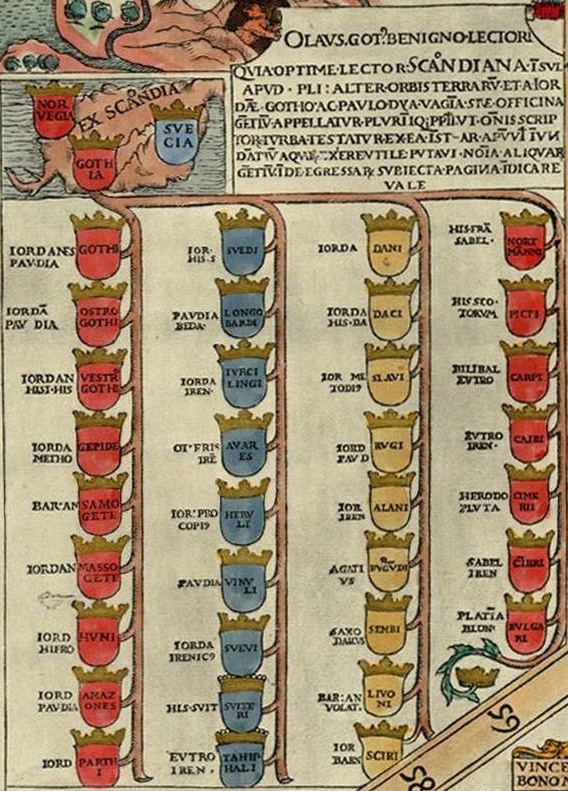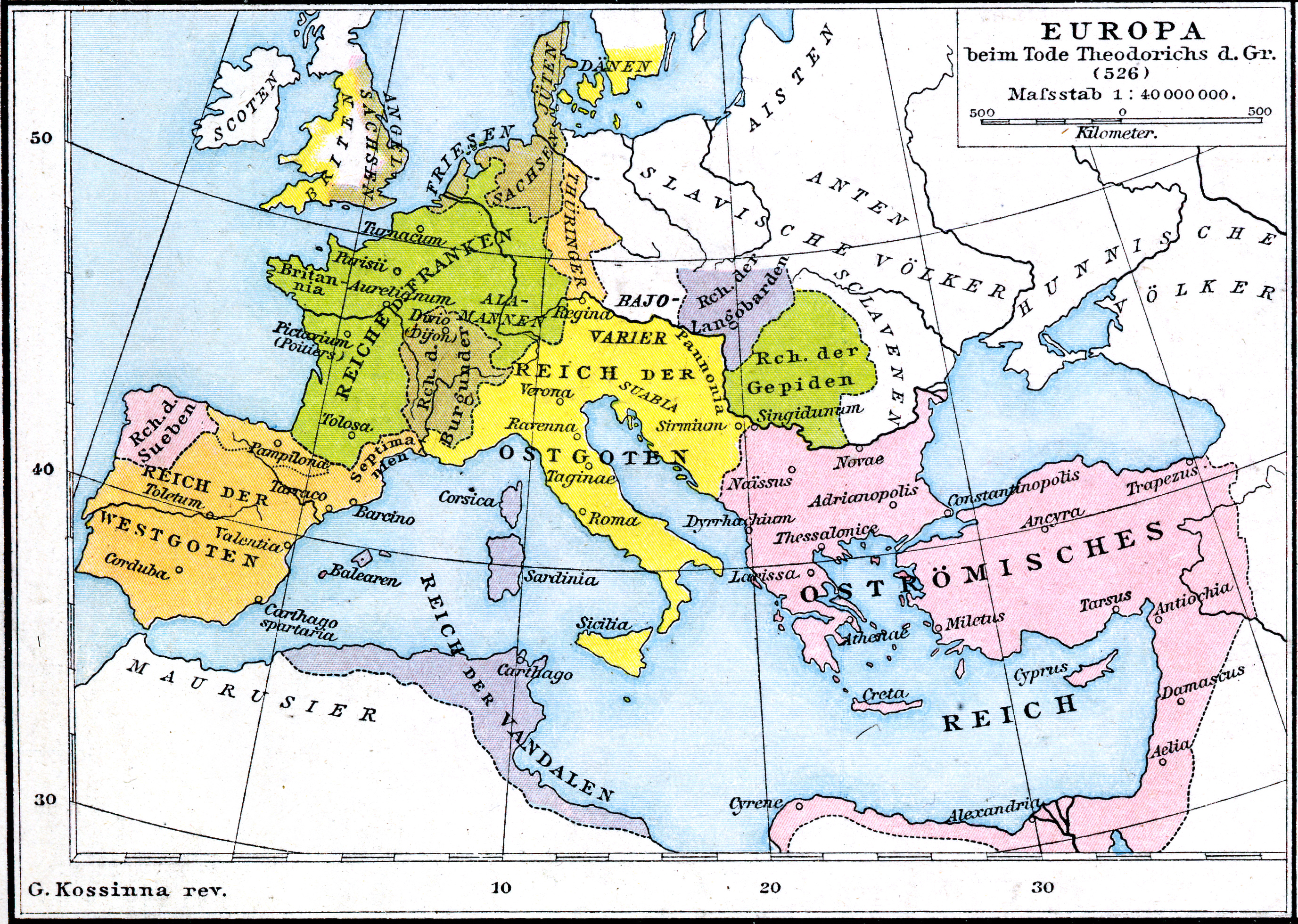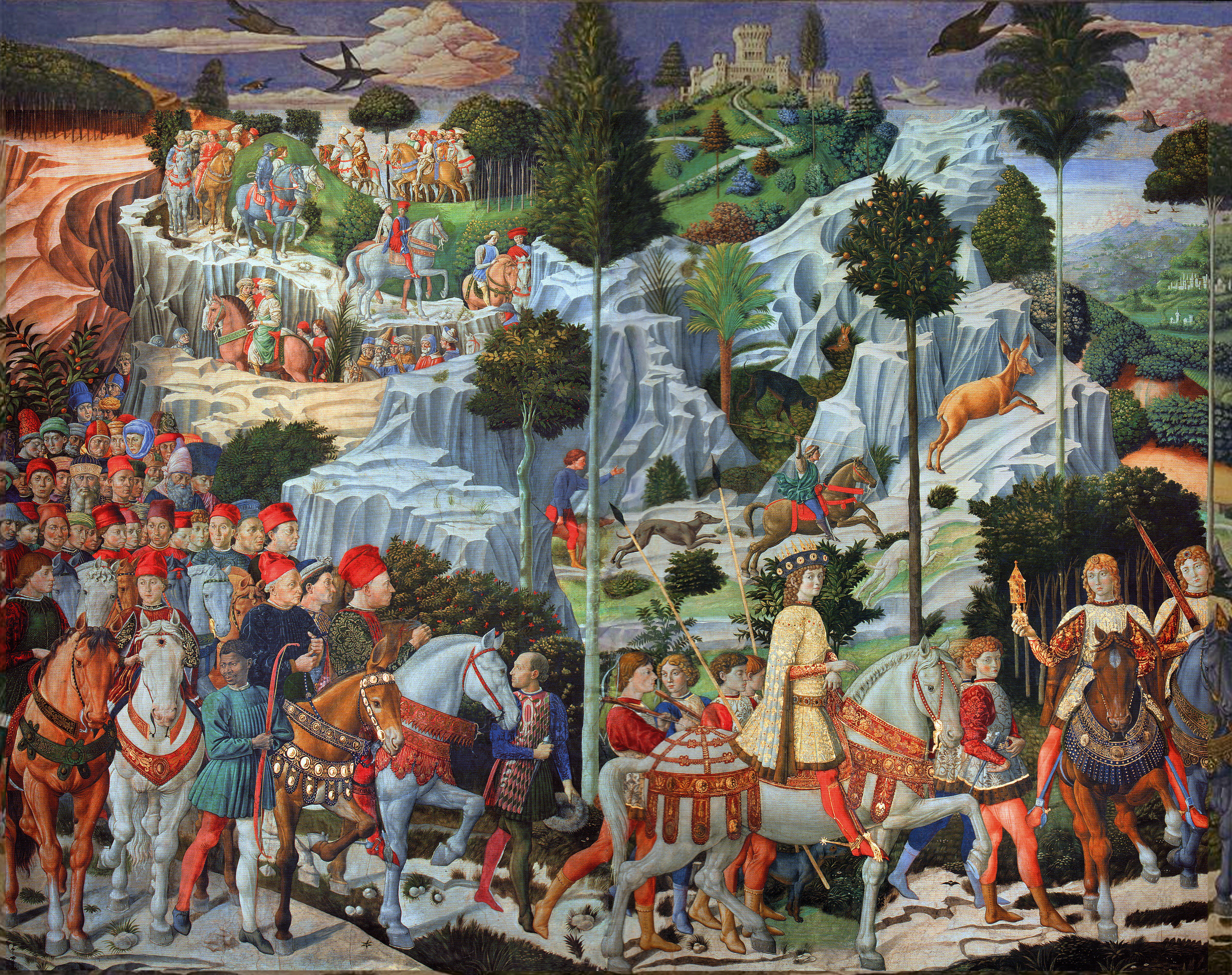|
Gothicism
Gothicism or Gothism ( ; ) was an ethno-cultural ideology and cultural movement in Sweden, which took honor in being a Swede, for being purportedly related to the Goths. This was a result of a resolute decades long effort from Swedish writers, scholars and historical revisionists alike dedicated towards proving that the Goths had originated from Götaland and wherefrom their name was etymologically derived. This premise, however, has been heavily contested and met with scepticism by a number of eminent historians such as Carlo Troya who is esteemed as a leading figure on Italian history during the early middle ages. The founders of the movement were Nicolaus Ragvaldi and the brothers Johannes Magnus, Johannes and Olaus Magnus. The belief continued to hold power in the 17th century, when Sweden was a great power following the Thirty Years' War, but lost most of its sway in the 18th. It was renewed by the Viking revival and Romantic nationalism in the early 19th century, this time ... [...More Info...] [...Related Items...] OR: [Wikipedia] [Google] [Baidu] |
Goths
The Goths were a Germanic people who played a major role in the fall of the Western Roman Empire and the emergence of medieval Europe. They were first reported by Graeco-Roman authors in the 3rd century AD, living north of the Danube in what is now Ukraine, Moldova, and Romania. From here they conducted raids into Roman territory, and large numbers of them joined the Roman military. These early Goths lived in the regions where archaeologists find the Chernyakhov culture, which flourished throughout this region during the 3rd and 4th centuries. In the late 4th century, the lands of the Goths in present-day Ukraine were overwhelmed by a significant westward movement of Alans and Huns from the east. Large numbers of Goths subsequently concentrated upon the Roman border at the Lower Danube, seeking refuge inside the Roman Empire. After they entered the Empire, violence broke out, and Goth-led forces inflicted a devastating defeat upon the Romans at the Battle of Adrianople in 378. Ro ... [...More Info...] [...Related Items...] OR: [Wikipedia] [Google] [Baidu] |
Nicolaus Ragvaldi
Nicolaus Ragvaldi (; early 1380s – 17 February 1448) was the bishop of Växjö and the archbishop of Uppsala in Sweden from 1438 to 1448. He is known as an early representative of the Gothicist tradition. On 12 November 1434 he held a speech at the council of Basel, where he argued that the Swedish monarch, Eric of Pomerania, was a successor to the Gothic kings, and that the Swedish delegation deserved senior rank. The Spanish delegation responded with a claim of seniority because of the Visigoths. Notes of these speeches were written down and preserved, and included by Johannes Magnus when he wrote the influential ''History of the Nordic People'' about 150 years later. His research results resulted in Gustav Vasa's son styling himself as Eric XIV, although his father disapproved. See also * List of archbishops of Uppsala ReferencesArticle ''Nils Ragvaldsson''from the Nordisk Familjebok (Swedish) * 1380s births Roman Catholic archbishops of Uppsala 15th-cen ... [...More Info...] [...Related Items...] OR: [Wikipedia] [Google] [Baidu] |
Johannes Magnus
Johannes Magnus (a modified form of Ioannes Magnus, a Latin translation of his birth name Johan Månsson; 19 March 1488 – 22 March 1544) was the last functioning Catholic Archbishop in Sweden, and also a theologian, genealogist, and historian. Life Johannes Magnus was born in Linköping, son of the burgess Måns Pedersson and his wife Kristina Kruse. (His own later claims to be descended from a noble family named Store are unverified.) Magnus was selected by Gustav I Vasa to become Archbishop, in 1523. As he was about to travel to Rome to be ordained, a papal bull from Pope Clement VII was received, stating that the previous Archbishop Gustav Trolle, who was at the time in exile abroad, should be reinstated. The papal bull declared the deposition of Trolle unlawful. However, Gustav Vasa refused to reinstate Trolle. Instead he ignored the papal bull and took it upon himself to install Magnus without papal acceptance. Before long, however, Johannes Magnus rebelled by decl ... [...More Info...] [...Related Items...] OR: [Wikipedia] [Google] [Baidu] |
Romantic Nationalism
Romantic nationalism (also national romanticism, organic nationalism, identity nationalism) is the form of nationalism in which the state claims its political legitimacy as an organic consequence of the unity of those it governs. This includes such factors as language, race, ethnicity, culture, religion, and customs of the nation in its primal sense of those who were born within its culture. It can be applied to ethnic nationalism as well as civic nationalism. Romantic nationalism arose in reaction to dynastic or imperial hegemony, which assessed the legitimacy of the state from the top down, emanating from a monarch or other authority, which justified its existence. Such downward-radiating power might ultimately derive from a god or gods (see the divine right of kings and the Mandate of Heaven). Among the key themes of Romanticism, and its most enduring legacy, the cultural assertions of romantic nationalism have also been central in post-Enlightenment art and political ph ... [...More Info...] [...Related Items...] OR: [Wikipedia] [Google] [Baidu] |
Viking Revival
The Viking revival was a movement reflecting new interest in, and appreciation for Viking medieval history and culture. Interest was reawakened in the late 18th and 19th centuries, often with added heroic overtones typical of that Romanticism, Romantic era. The revival began earlier with historical discoveries and early modern publications dealing with Old Norse culture. The first printed edition of the 13th-century ''Gesta Danorum'' or the ''Legend of the Danes'' by Saxo Grammaticus, came out in 1514 just as book printing began become more practical and printing trade was quickly spreading. Olaus Magnus's ''Historia de gentibus septentrionalibus'', or "History of the northern peoples", was printed in 1555. The pace of publication increased during the 17th century with Latin translations of the famous Edda, notably Peder Resen's ''Edda Islandorum'' of 1665. The Edda consisted of two 13th-century Medieval Icelandic literary works on Norse mythology, written down in the 13th century ... [...More Info...] [...Related Items...] OR: [Wikipedia] [Google] [Baidu] |
Scandza
Scandza was described as a "great island" by Gothic-Byzantine historian Jordanes in his work ''Getica''. The island was located in the Arctic regions of the sea that surrounded the world. The location is usually identified with Scandinavia. Jordanes was a Roman citizen living in Constantinople but described himself as being of Gothic descent. His ''Getica'', written in 551 AD, gives a history of the Goths, beginning in Scandza from where they later migrated to Gothiscandza, near the mouth of the Vistula River. The Swedish archaeologist Göran Burenhult describes this account as a unique glimpse into the tribes of Scandinavia in the 6th century. Geographical description through history Early Greek and Roman geographers used the name ''Scandia'' for various uncharted islands in Northern Europe. The name originated in Greek sources and then into Latin , which used it for a long time for different islands in the Mediterranean region. In the Iliad the name denotes an ancient city ... [...More Info...] [...Related Items...] OR: [Wikipedia] [Google] [Baidu] |
Theodoric The Great
Theodoric (or Theoderic) the Great (454 – 30 August 526), also called Theodoric the Amal, was king of the Ostrogoths (475–526), and ruler of the independent Ostrogothic Kingdom of Italy between 493 and 526, regent of the Visigoths (511–526), and a patrician (ancient Rome)#Late Roman and Byzantine period, patrician of the Byzantine Empire#Loss of the Western Roman Empire, Eastern Roman Empire. As ruler of the combined Gothic realms, Theodoric controlled an empire stretching from the Atlantic Ocean to the Adriatic Sea. Though Theodoric himself only used the title 'king' (''rex''), some scholars characterize him as a Roman Emperor#Later assertions to the title, Western Roman emperor in all but name, since he ruled a large part of the former Western Roman Empire described as a ''Res Publica'', had received the former Western imperial regalia from Constantinople in 497 which he used, was referred to by the imperial title ''princeps'' by the Italian aristocracy and exercised imper ... [...More Info...] [...Related Items...] OR: [Wikipedia] [Google] [Baidu] |
Roman Empire
The Roman Empire ruled the Mediterranean and much of Europe, Western Asia and North Africa. The Roman people, Romans conquered most of this during the Roman Republic, Republic, and it was ruled by emperors following Octavian's assumption of effective sole rule in 27 BC. The Western Roman Empire, western empire collapsed in 476 AD, but the Byzantine Empire, eastern empire lasted until the fall of Constantinople in 1453. By 100 BC, the city of Rome had expanded its rule from the Italian peninsula to most of the Mediterranean Sea, Mediterranean and beyond. However, it was severely destabilised by List of Roman civil wars and revolts, civil wars and political conflicts, which culminated in the Wars of Augustus, victory of Octavian over Mark Antony and Cleopatra at the Battle of Actium in 31 BC, and the subsequent conquest of the Ptolemaic Kingdom in Egypt. In 27 BC, the Roman Senate granted Octavian overarching military power () and the new title of ''Augustus (title), Augustus'' ... [...More Info...] [...Related Items...] OR: [Wikipedia] [Google] [Baidu] |
Medieval
In the history of Europe, the Middle Ages or medieval period lasted approximately from the 5th to the late 15th centuries, similarly to the post-classical period of World history (field), global history. It began with the fall of the Western Roman Empire and transitioned into the Renaissance and the Age of Discovery. The Middle Ages is the middle period of the three traditional divisions of Western history: classical antiquity, the medieval period, and the modern period. The medieval period is itself subdivided into the Early Middle Ages, Early, High Middle Ages, High, and Late Middle Ages. Population decline, counterurbanisation, the collapse of centralised authority, invasions, and mass migrations of tribes, which had begun in late antiquity, continued into the Early Middle Ages. The large-scale movements of the Migration Period, including various Germanic peoples, formed new kingdoms in what remained of the Western Roman Empire. In the 7th century, North Africa and the ... [...More Info...] [...Related Items...] OR: [Wikipedia] [Google] [Baidu] |
Chronicle
A chronicle (, from Greek ''chroniká'', from , ''chrónos'' – "time") is a historical account of events arranged in chronological order, as in a timeline. Typically, equal weight is given for historically important events and local events, the purpose being the recording of events that occurred, seen from the perspective of the chronicler. A chronicle which traces world history is a universal chronicle. This is in contrast to a narrative or history, in which an author chooses events to interpret and analyze and excludes those the author does not consider important or relevant. The information sources for chronicles vary. Some are written from the chronicler's direct knowledge, others from witnesses or participants in events, still others are accounts passed down from generation to generation by oral tradition.Elisabeth M. C. Van Houts, ''Memory and Gender in Medieval Europe: 900–1200'' (Toronto; Buffalo: University of Toronto Press, 1999), pp. 19–20. Some used writ ... [...More Info...] [...Related Items...] OR: [Wikipedia] [Google] [Baidu] |
Carta Marina Ex Scandia
Carta may refer to: People with the surname * Angelico Carta (1886-?), Italian military officer * Antonella Carta (born 1967), Italian footballer * Fabio Carta (born 1977), Italian short track speed skater * Federica Carta (other) * Gianuario Carta (1931–2017), Italian politician * John Carta (1946–1990), American parachutist * Marco Carta (born 1985), Italian singer * Maria Carta (1934–1994), Italian singer-songwriter * Mino Carta (born 1933), Italian-born Brazilian journalist * Paolo Carta (born 1964), Italian musician * Virginia Elena Carta (born 1996), Italian professional golfer Other uses * Carta (publisher), an Israeli publishing and mapping company * Carta (software company), an American capitalization services company * Center for Academic Research and Training in Anthropogeny, University of California, San Diego * Charleston Area Regional Transportation Authority * Chattanooga Area Regional Transportation Authority * FR-2, a synthetic resin bonded p ... [...More Info...] [...Related Items...] OR: [Wikipedia] [Google] [Baidu] |
Council Of Basel
The Council of Florence is the seventeenth ecumenical council recognized by the Catholic Church, held between 1431 and 1445. It was convened in territories under the Holy Roman Empire. Italy became a venue of a Catholic ecumenical council after a gap of about 2 centuries (the last ecumenical council to be held in Italy was the 4th Council of the Lateran in Rome's Lateran Palace). It was convoked in Basel as the Council of Basel by Pope Martin V shortly before his death in February 1431 and took place in the context of the Hussite Wars in Bohemia and the rise of the Ottoman Empire. At stake was the greater conflict between the conciliar movement and the principle of papal supremacy. The Council entered a second phase after Emperor Sigismund's death in 1437. Pope Eugene IV translated the Council to Ferrara on 8 January 1438, where it became the Council of Ferrara and succeeded in drawing some of the Byzantine ambassadors who were in attendance at Basel to Italy. Some Co ... [...More Info...] [...Related Items...] OR: [Wikipedia] [Google] [Baidu] |




